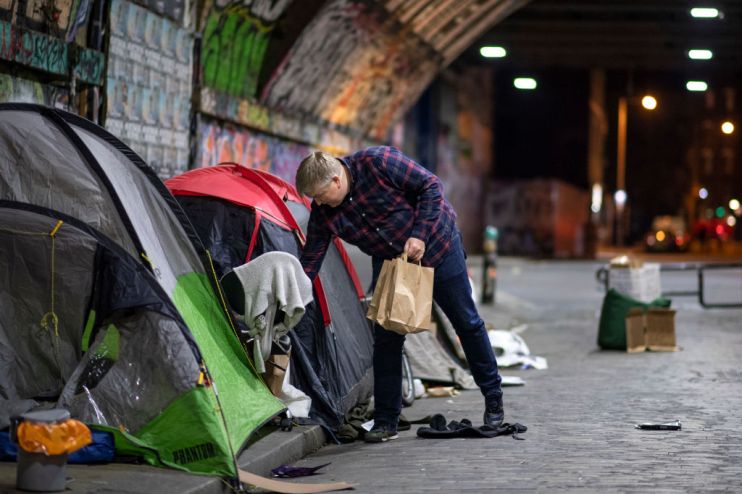The end to modern slavery has its roots in the everyday changes

Today is UK Anti-Slavery Day: a time to acknowledge the scale of this horrific crime and, perhaps most importantly, to deepen our resolve to fight against modern slavery, human trafficking, and human rights violations.
Modern slavery is a hidden crime with an estimated 100,000 victims in this country alone. It touches the clothes we buy, the food we eat, and the products we consume.
The 2015 Modern Slavery Act marked a monumental shift in how this crime is viewed: consolidating existing offences, increasing punishments for offenders, and improving support for victims. It paved the way for targeted action, and much progress has been made to this end.
However, one of the many adverse results of Covid-19 has been an increase in modern slavery victims.
Job losses, financial insecurity, and lockdown all bring challenges. People are more likely to be forced into jobs with unfavourable conditions. As I know from the work we have undertaken, it is when people are at their most desperate that they are particularly vulnerable to exploitation.
They are also vulnerable to homelessness. We should not be deceived by the reduced numbers of rough sleepers reported to the National Referral Mechanism in recent months. This drop was in part due to the public spending vastly more of their time indoors at home, making people less likely to encounter victims and therefore reducing their chance of detection. Increased homelessness has likely been another consequence of the pandemic.
So on Anti-Slavery Day 2020, we must commit to working to stop this.
While estimates suggest that there are 100,000 victims of this crime living in the UK, last year only 10,000 potential victims were reported. We have to do more to identify and support victims.
Major structural shifts are necessary to tackle this problem, but these take time, and businesses, communities, and the government cannot afford to wait. Instead, we can act now, taking a “kaizen” approach of continuous improvement, and implementing small changes, one step at a time.
For a start, businesses can partner with local authorities to ensure that victims don’t fall through the cracks. My work with Hilton UK and Thames Valley Police during the national lockdown saw victims of domestic abuse and modern slavery provided with emergency accommodation in hotels. Getting people off the streets, where they are most vulnerable, must be a priority.
Furthermore, rather than creating new bureaucracies or waiting for legislation to be passed, we should ensure that existing law enforcement agencies — such as the Environmental Health services — can spot the signs of exploitation when entering premises for routine inspections. We should empower them to report any identified cases centrally, building a strong system.
Planning and licensing committees should also ask businesses applying for permission about measures being taken to combat modern slavery. This needn’t be a burden on businesses, simply a way of keeping the issue high on an organisation’s agenda.
These changes are achievable and replicable across the country. Moreover, they don’t rely on creating new national agencies, but on collaboration at a local level.
Hopefully, future generations will see Anti-Slavery Day as an opportunity to reflect on the crimes of the past, not the present. The power to realise this vision is in our hands now.
Main image credit: Getty